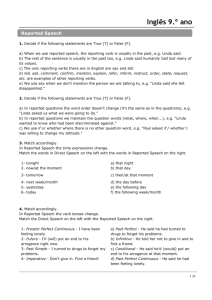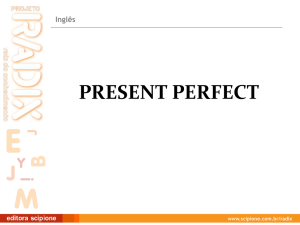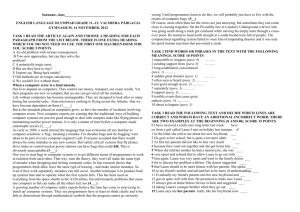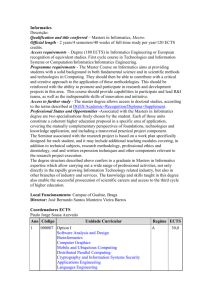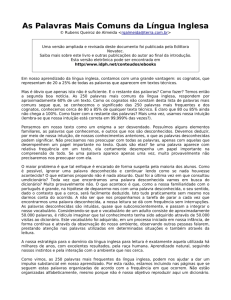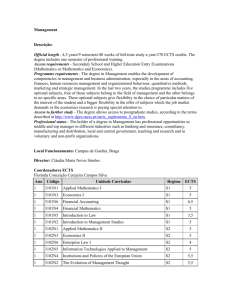LEARNERS NEEDS - community.britishcouncil.org
advertisement
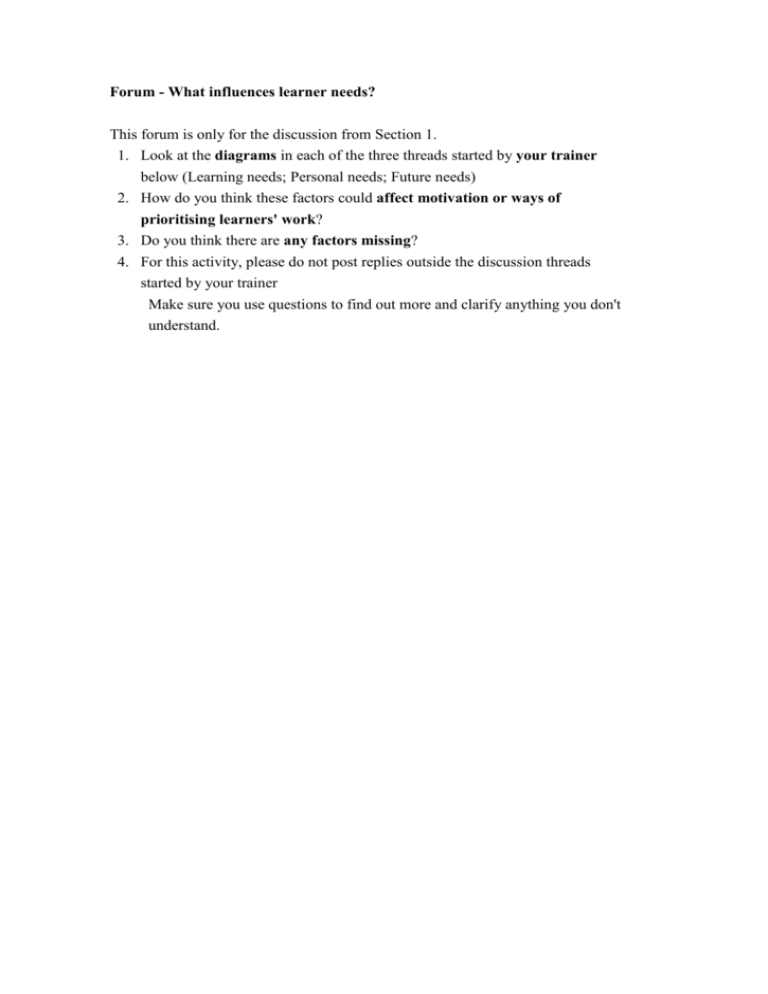
Forum - What influences learner needs? This forum is only for the discussion from Section 1. 1. Look at the diagrams in each of the three threads started by your trainer below (Learning needs; Personal needs; Future needs) 2. How do you think these factors could affect motivation or ways of prioritising learners' work? 3. Do you think there are any factors missing? 4. For this activity, please do not post replies outside the discussion threads started by your trainer Make sure you use questions to find out more and clarify anything you don't understand. 1. The diagram below suggests that the context of use is a great determining factor in deciding the future needs of learners. Choose one of these contexts and briefly explain how you think it might affect motivation, or how a particular context might influence how a learner's work could be prioritized. I was investigating my students’ beliefs on the importance and motivation of learning English and most of them pointed the professional use and future needs as interchangeable factors of the most importance. Bom, é importante aprender inglês porque o mundo de hoje é muito unido graças à globalização e, o inglês é a língua oficial, teoricamente você sabendo falar em inglês ou pelo menos escrever você consegue se comunicar em qualquer parte do mundo! (Diogo Queiroga) O inglês hoje é a língua mãe do mundo, por isso se você souber consequentemente vai estar mais dentro do mercado de trabalho e até para o dia a dia mesmo. (Alice) Aprender inglês é muito importante, ainda mais nos dias de hoje, devido à exigência do mercado de trabalho. (Danilo) Pra mim, a importância em aprender inglês, se dá pelo fato de que o inglês é a língua universal, e hoje tanto para entrar no mercado de trabalho, quanto para fazer viagens para qualquer lugar do mundo, saber inglês é fundamental. (Gabriela) Porque atualmente o inglês vem quebrando barreiras continentais, culturais, políticas e sociais. É importante conhecer e trabalhar com a língua se você não quiser fazer parte do lado ruim da globalização que facilita o acesso a bens e mercadorias para uns e ao mesmo tempo marginaliza quem não teve ou perdeu as oportunidades de se realizar profissionalmente. Hoje vemos diversos países querendo investir no Brasil já que é um excelente negócio. Além disso, várias empresas nacionais procuram mão de obra especializada. Faz tempo que o Brasil deixou de ser uma nação cuja produção alimentícia, industrial, petrolífera etc., era só para a subsistência do país. Agora nós temos clientes e eles são estrangeiros: alemães, ingleses, chineses, etc. E todos eles fazem negócios no Brasil falando a língua inglesa. Não se pode mais chegar a uma empresa e não saber interpretar o manual de um equipamento importado. Perder vendas porque não conseguiu interagir com o cliente que não falava português. Ser reprovado no semestre da faculdade de medicina porque o livro de anatomia era britânico. Enfim, para mim o inglês não traz problemas, mas abre portas para um futuro mais brilhante. (Diego Damásio) I believe most of my students are motivated to learn English because of a practical need. They want to learn the language for instrumental reasons, in other words, to open their minds, increase their chances to get a good job and use this knowledge to read texts from their areas of expertise. They also used the metaphor of the bridge in which English is a bridge for a better future or for the social ascension. In this sense, “the ones who don’t know the language are out of the world” (ZOLIN-VESZ, 2003, p. 33). And this reinforces the analogy global versus local proposed by (DIAS; ASSISPETERSON, 2006, p. 115), in which English is the tool to reach the global and the difference is conceived as deprivation. DIAS, M. H. M.; ASSIS-PETERSON, A. A. O Inglês na Escola Pública: vozes de pais e alunos. Polifonia n. 12, vol. 2, 2006, p. 107-128. ZOLIN-VESZ, F. Reconsiderações sobre o ensino e a aprendizagem da língua inglesa no contexto escolar de mato grosso. In: Revista Norteamentos Disponível em:*projetos.unemat-net.br/revista_norteamentos/arquivos/004/.../03.pdf Acesso em 20/08/2011. 2. The diagram below shows some of the factors that influence learning needs. Choose one of these factors and briefly explain why you think it could affect motivation or how learners prioritise their work. According to Vester (2010), the learning styles have direct relation to the learners’ needs and affects motivation. They show how each one deal with knowledge in different ways using different strategies. There are more variations and factors to be considered when discussing the learning needs. Paiva (2005) mentions biological variations, from intelligence and aptitude to learn, age, cognitive styles, personality and affective factors, in addition to contextual variations where the learning process takes place. ─ quantity / quality of the input available, social distance, kind and intensity of feedback, culture, stereotypes, among others. (Ellis, 1990; Brown, 1993; Ehrman, 1996 apud Paiva, 2005). The author states that not only these factors determine the learners’ success, but a set of unpredictable dynamic and possible behaviors in the learning context, that interact with creativity in a complex system because human learning is not a predictable process. This way, one teaching approach can work effectively with one but not with others. Students have different learning styles and needs: visual (seeing), auditory (hearing), kinaesthetic (moving) or tactile (touching). As teachers we should motivate and permit creativity, the use of language in different contexts, for different functions and genres (PAIVA, 2005). Motivation determines the degree of effort you put into foreign or second language learning. The more motivation you may have, the more effort you tend to put into learning the language. It leads to success in learning (Takayuki Nakanish) NAKANISH, Takayuki. In Journal of Language and Linguistics: Critical Literature Review On Motivation. Japan: Ibaraki University. Vol 1, number 3, 2002. www.shakespeare.uk.net/journal/1_3/nakanishi1_3.html PAIVA, V.L.M.O. Modelo fractal de aquisição de línguas In: BRUNO, F.C. (Org.) Reflexão e Prática em ensino/aprendizagem de língua estrangeira. São Paulo: Editora Clara Luz, 2005. p. 23-36. http://www.veramenezes.com/modelo.htm VESTER, C. Learning styles and teaching. Available at: http://www.teachingenglish.org.uk/articles/learning-styles-teaching, 2010. 3. The diagram below shows some of the factors which influence learners' personal needs. Drawing on your own experience as a learner, briefly describe how your personal needs - e.g. materials, topics, motivation, interaction with other learners etc. - were influenced by one of the factors in the above illustration. When I was a teenager my mother advised me to study English, as most of the parents do. I spent some months there, but I was not so motivated and I gave up. Years later, I started writing a friend in English and it was hard because I was not fluent. I started studying in another school and there, I was told I had a good pronunciation and they offered me the opportunity to teach children and learn English for free. It was very interesting because I had classes at night and taught children in the afternoon and then for adults..... I liked the job and decided to study Language at the university. I had been influenced by my personal and professional interest.

